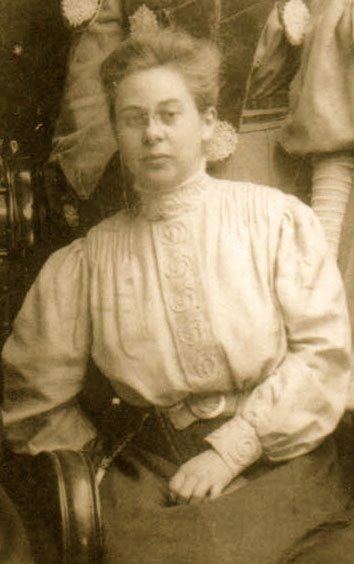

Partner Mary Garland Smith
Queer Places:
Hollywwod Cemetery, 412 S Cherry St, Richmond, VA 23220
Lewis Ginter Botanical Garden, 1800 Lakeside Ave, Richmond, VA 23228
Ginter’s House, 901 W Franklin St, Richmond, VA 23284
405 E Cary St, Richmond, VA 23219
St. Andrew's Episcopal Church, 236 S Laurel St, Richmond, VA 23220
 Grace
Evelyn Arents (1848 – June 20, 1926) was an heiress, Christian activist and
philanthropist in Richmond, Virginia. She inherited $20 million from her uncle
Lewis Ginter,
a tobacco
business magnate and philanthropist, and she used the money to transform
Richmond for the better.
Grace
Evelyn Arents (1848 – June 20, 1926) was an heiress, Christian activist and
philanthropist in Richmond, Virginia. She inherited $20 million from her uncle
Lewis Ginter,
a tobacco
business magnate and philanthropist, and she used the money to transform
Richmond for the better.
Arents was born in Manhattan, New York, the youngest of four children of cedar barrel maker James Arents and his wife Jane Swain Gintner Arents.
When her husband died in 1855, Jane and her four young children received financial support from her uncle Lewis Ginter, a tobacco and streetcar business magnate, as well as Richmond real estate developer and philanthropist.
In 1879, Arents and her mother moved to Richmond and lived with their bachelor uncle in the Ginter House, an urban brownstone at 405 East Cary Street near the city's business district. Her brother George also lived with them briefly, but rejoined his other two sisters in New York, where he became an avid collector and benefactor of the New York Public Library.
Trained as a nurse, as was common with women in the deaconess movement of that era, Arents helped establish the Richmond chapter of the Instructional Visiting Nurse Association, which also drew upon the lessons of the Settlement House movement, exemplified by Jane Addams in Chicago, among other socially active women. Arents valued her privacy fiercely, as had her uncle, and avoided publicity. She also avoided an ostentatious lifestyle. Arents never posed for a public portrait and few images of her have been found. She supported the Episcopal Church and became known for her work among the city's poor, mostly in a self-effacing way, or simply through her checkbook.
When her uncle died in 1897, Arents inherited approximately $20 million, which she used to transform Richmond.[1] One of her nicknames became the "Angel of Oregon Hill", referring to a poor neighborhood in her adopted city which received many of her philanthropic efforts.
Ginter’s House
Lewis Ginter Botanical Garden
She was a voracious reader and in 1899 established the Grace Arents Free Library on (224) Cherry Street in Oregon Hill, the first free circulating library in Richmond; the building later became the William Byrd Community House.[2] Arents also financed the construction of three churches, including St. Andrew's, which was completed in 1903. Arents also donated money to establish a tuition-free school to teach neighborhood children, as well as a night school for working children and adults. She also built the first subsidized housing in the city.[3]
Arents donated the Lewis Ginter Community Building for the Ginter Park neighborhood, one of three areas of north Richmond that her uncle had helped develop (the others were Bellevue Park and Sherwood Park).[4] Arents also expanded and renovated the Lakeside Wheel Club, which her uncle had built, transforming it into a convalescent home for sick children. Later, as other facilities filled that social niche, she turned the estate into a home and garden, called Bloemendaal. Arents deeded a life estate to her partner Mary Garland Smith upon her death, after which the City of Richmond received the property for a public botanical garden, known as the Lewis Ginter Botanical Garden.
An elementary school for which Arents donated land and $5,000 towards building costs was completed in 1911 and named in her honor. Since 1989 the site has housed Open High School (Virginia).[5] Arents also helped establish the Playground at Clark Springs, one of Richmond's first[2][6]
Arents died on June 20, 1926, and is buried in the Hollywood Cemetery (Richmond, Virginia). The gravesite includes a sundial grave marker bordered by boxwoods near the mausoleum of her uncle.[7] A Virginia historical marker commemorating her philanthropic career stands a few blocks from the cemetery entrance, next to St. Andrew's Episcopal Church. The obituary in the Richmond News Leader said enumeration of the "libraries, recreational centers, schools, churches, hospitals, and similar institutions" would be impossible to list.[8]
On the 87th anniversary of her death, St. Andrew's church commemorated her life and continued legacy.[9] However, she remains virtually unknown, having ordered her journals and other correspondence destroyed at her death.[7]
My published books:
https://en.wikipedia.org/wiki/Grace_Arents